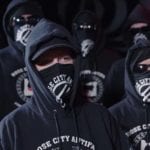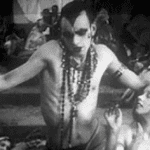 History
History  History
History  Animals
Animals Ten Times It Rained Animals (Yes, Animals)
 Mysteries
Mysteries 10 Devastating Missing Child Cases That Remain Unsolved
 Creepy
Creepy 10 Scary Tales from the Middle Ages That’ll Keep You up at Night
 Humans
Humans 10 One-of-a-kind People the World Said Goodbye to in July 2024
 Movies and TV
Movies and TV 10 Holiday Movies Released at Odd Times of the Year
 Politics
Politics 10 Countries Where Religion and Politics Are Inseparable
 Weird Stuff
Weird Stuff 10 Freaky Times When Famous Body Parts Were Stolen
 Miscellaneous
Miscellaneous 10 Interesting Things Manufacturers Stopped Making and Why
 Gaming
Gaming 10 Funny Tutorials in Games
 History
History 10 Desperate Last Stands That Ended in Victory
 Animals
Animals Ten Times It Rained Animals (Yes, Animals)
 Mysteries
Mysteries 10 Devastating Missing Child Cases That Remain Unsolved
Who's Behind Listverse?

Jamie Frater
Head Editor
Jamie founded Listverse due to an insatiable desire to share fascinating, obscure, and bizarre facts. He has been a guest speaker on numerous national radio and television stations and is a five time published author.
More About Us Creepy
Creepy 10 Scary Tales from the Middle Ages That’ll Keep You up at Night
 Humans
Humans 10 One-of-a-kind People the World Said Goodbye to in July 2024
 Movies and TV
Movies and TV 10 Holiday Movies Released at Odd Times of the Year
 Politics
Politics 10 Countries Where Religion and Politics Are Inseparable
 Weird Stuff
Weird Stuff 10 Freaky Times When Famous Body Parts Were Stolen
 Miscellaneous
Miscellaneous 10 Interesting Things Manufacturers Stopped Making and Why
 Gaming
Gaming 10 Funny Tutorials in Games
10 Ways The Police Are Operating Like The Mafia
On my honor, I will never betray my badge, my integrity, my character, or the public trust. I will always have the courage to hold myself and others accountable for our actions.
These are the words of the oath recommended by the International Association of Chiefs of Police . But an increasing number of law enforcement officers seem to be betraying the trust of the public they are supposed to serve and protect. Thanks to the invention of smartphone cameras and the ability to instantly share video through social media, a disturbing trend is becoming clear—some police officers are beginning to operate just like the Mafia.
Note: We would like to point out that there are a great number of fine male and female police officers serving to protect us. This list is written with the hope that those public servants will help end the corruption described here.
10Seizing Property
The hostile takeover is one of the biggest power plays that any criminal organization can make—they like what you have and simply take it. Recently, Russian businessmen have been employing criminals to seize rivals’ offices by sending up to 150 armed men to force them out at gunpoint. The premises are then turned into high-rise apartment buildings.
In America, law enforcement can do something similar through a process known as “civil forfeiture,” which allows the government to seize your property even without charging you with a crime. All they need is the “presumption” that your property might “facilitate” a crime, and the government sues your property rather than you. This is a horrible abuse of power and risks policing for profit—the city of Philadelphia alone makes $6 million a year from civil forfeiture.
Disturbingly, 80 percent of the Philadelphia residents who contributed to that $6 million were never even charged with a crime. Even when confirmed crimes were involved, they were often disturbingly small or committed by people other than the homeowners—one couple had their house seized because their son was caught selling $40 worth of marijuana.
9Eliminating Evidence
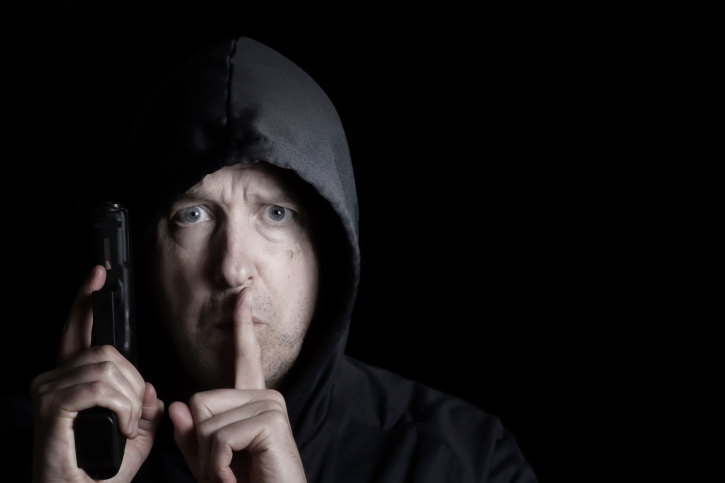
“He was like a piece of meat. We were telling them: ‘He’s dead. You guys already killed him.’ ” That’s how Maria Mendez described witnessing police officers beat David Sal Silva to death near Kern Medical Center in Bakersfield, California. In May 2013, Mendez was going to visit a relative who had been in a car accident when she heard screams coming from across the street. To her shock, six officers were beating Silva with batons and flashlights. Mendez immediately took out her phone and starting recording the assault, which she said lasted at least eight minutes. Other witnesses corroborated the story, saying the officers then hogtied Silva, dropping him twice. Mendez’s daughter’s boyfriend also recorded the beating, but both had their phones confiscated by detectives from the county sheriff’s department, who did not have a warrant to do so.
Other witnesses also had their phones seized. Attorney John Tello, who is representing two other witnesses who shot video footage, described arriving at the home of one of his clients to find three officers already there. Tello claimed that the witness was not allowed to leave with her phone—the officers had practically quarantined her in her own home. When Tello attempted to speak with the witness in private, the officers blocked his path, explaining that the phone was evidence and couldn’t be taken out of their sight.
As with Mendez and her daughter’s boyfriend, the police do not initially appear to have had a warrant to seize the phones. In the case of Tello’s other client, the lawyer claims a warrant was not issued until well after he was there, even though the phone had been seized prior to his arrival. “They basically told him they were either going to keep him at this house all night until they could find a judge to sign a search warrant or he could just turn over his phone.” Because he had to go to work, the witness eventually gave up the phone and was allowed to leave. Tello says the phone still has not been returned. He gave up his phone so that he could leave for work, with the deputies telling him that he could pick up his phone the next day – after they had gotten the files from his phone. No video, no case.
8Intimidation

In the mob, murder is as common as breathing, mainly because that’s the only way rules can be enforced among criminals. Intimidation is key—when the mob makes a threat, people know they have the bloody reputation to back it up.
Unfortunately, some modern-day police departments are beginning to develop a worrying reputation for using lethal force, making it easy to believe your life might be in danger if an officer threatens you. And such threats do happen, like the cop who told an unarmed passenger with his hands on the steering wheel, “If you move, I will kill you right here,” while pointing a gun at him during a routine traffic stop. Or the Ferguson deputy who pointed an assault rifle at a reporter who asked for his name, shouting, “I will f—ing kill you, get back!” Sadly, some officers seem to have no problem with threatening to kill people who clearly pose no threat to them.
7Brutality
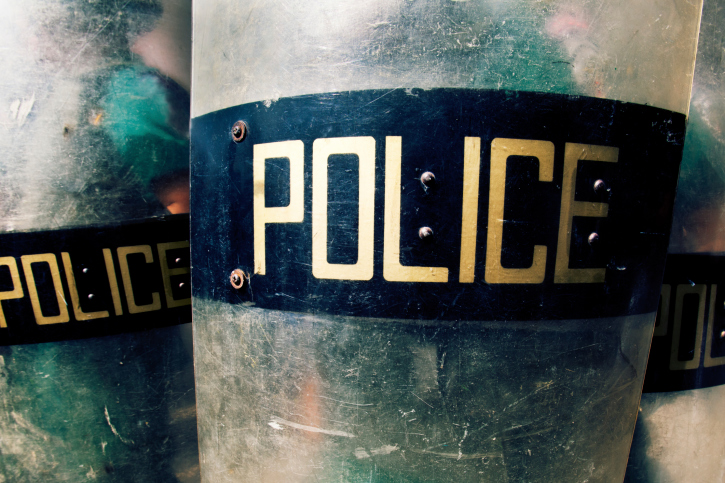
In organized crime, sometimes mob bosses feel that even murder doesn’t strike enough fear. So when they truly want a message sent, they may order a public hit, or have the victim beaten and tortured before death, to serve as an example for others to see. The resulting fear is strong enough to scare most people into line.
Tragically, some police officers seem to feel free to act in a similarly brutal manner, from an officer in Atlanta kicking a visibly pregnant woman in the stomach, to two policemen beating a handcuffed woman in their squad car and shooting volts of electricity via taser directly into her heart, to an officer tasering a 10-year-old boy allegedly because he refused to wash his patrol car. Such acts send a message that no one is immune to savagery, not even a handcuffed pregnant woman lying on the ground.
6Shaking Down Criminals
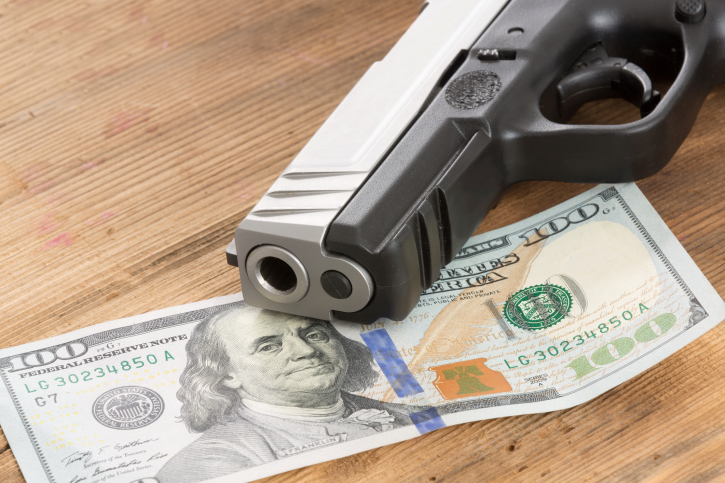
The Mafia has a long history of skimming money off from lesser criminals—and it seems that some police officers have learned to do the same. For example, five officers from the San Francisco Police Department recently landed in hot water when a public defender released surveillance video of them walking the halls of a cheap motel out of uniform, performing illegal and warrantless searches of rooms, stealing marijuana for resale, and even swiping items as petty as a $500 iTunes gift card.
Then there’s the unrelated case of six officers from the Philadelphia Police Department’s Narcotics Field Unit, who took things to a more disturbing level. In 2008, the officers made a drug dealer go to his parents’ home, forced him to open the safe by threatening to seize the house as part of a drug arrest, and stole around $20,000 they found inside. The same officers later broke into a different drug dealer’s apartment with a sledgehammer and hung him by his feet from the 18th-floor balcony until he told them where he was hiding his money. The cops made off with $200,000 in drug money and a Calvin Klein suit. Fortunately, their crime spree eventually caught up with them and they are currently awaiting trial.
5Stop And Frisk
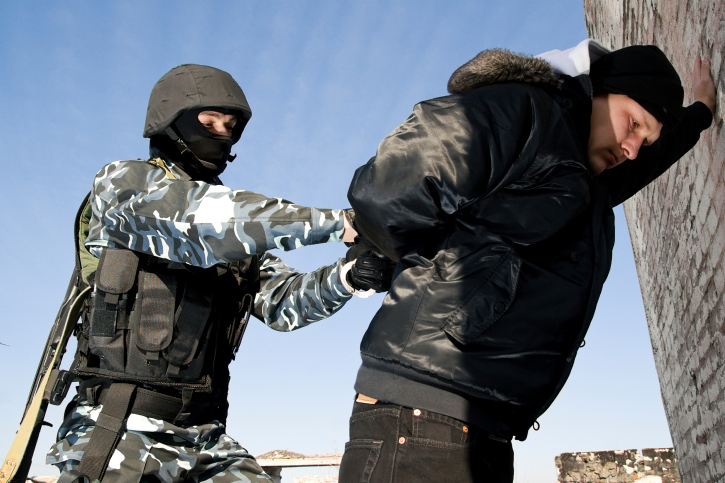
In some areas of Mexico, drug cartels can seem more powerful than the government—sometimes even building schools for local children and assuming other government functions. Naturally, these gangs want to keep other cartels out of “their” area. The solution? Set up heavily armed checkpoints on Mexican highways and streets. Anybody trying to pass can expect to be searched at gunpoint.
Nothing like that could ever happen in America, right?
Of course not. Well, maybe if you live in New York, which has been accused of being the state with the least personal freedom. One of the most worrying examples is the “Stop and Frisk” policy, which gives police the right to stop and search any citizen at their own discretion, effectively turning every NYPD officer into a mobile checkpoint. Keep in mind, even if you haven’t broken any laws, are not being arrested, and have not been read any rights or presented with a search warrant, the police can still search you. Minorities are overwhelmingly targeted for frisking. In 2013, a judge ruled that the policy violated the rights of thousands of New Yorkers, but the decision was eventually overturned.
4Military-Grade Equipment
Over the past decade, the drug war in Mexico has resulted in almost unbelievable violence, with tens of thousands dead since 2006. The weaponry used by the cartels has evolved to include everything from rocket launchers to land mines and homemade bulletproof tanks. According to security adviser Alberto Islas: “Organized crime has increased its firepower to move personnel and mount counterattacks against the army. This is the consolidation of an urban guerilla war scenario.”
But even the cartels can seem under-equipped when compared to some American police departments. In 1990, Congress passed the National Defense Authorization Act, which allowed the Department of Defense to transfer surplus military equipment to law enforcement agencies around the country. As a result, many local and state police departments—and even school districts—now boast a veritable arsenal of assault rifles, grenade launchers, and even tank-like armored vehicles.
This is unbelievable if you allow it to sink in. The American government wants local police departments to be armed with surplus war machines, like the two-story behemoth used by the Dekalb County SWAT team in Georgia, or the military-grade armored personnel carrier sent to a town with a population of 8,500 (and no reported murders between 2009–2012). No one questions that the police should be well-equipped to do their jobs, but it’s a little worrying when policemen and Marines are dressed and armed exactly alike.
3Organized Crime
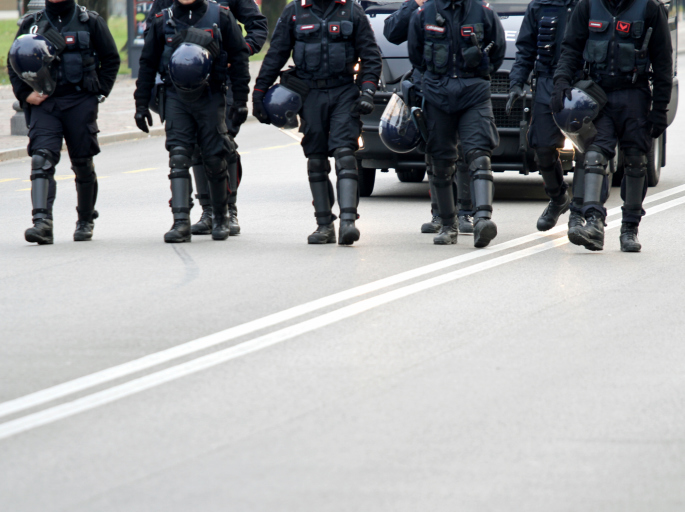
Sadly, organized crime has been around for a long time, from selling alcohol during the Prohibition era to human trafficking, gun-running, and extortion. Gang money is even allegedly involved in rebuilding the World Trade Center in New York. The mob’s lifeblood is making a corporation out of the underworld.
This stands in direct opposition to what the police force is supposed to represent, yet there have been quite a few cases of police officers becoming involved in organized crime. During the 1980s “cocaine cowboy” era in Miami, no less than 10 percent of the entire police department was fired or suspended after a corruption scandal came to light. In 2011, Arizona sheriff’s deputies were arrested for involvement in human trafficking and money laundering, while officers in New York were accused of running a gun smuggling ring. New Orleans spent decades in a long fight against police corruption—in the early ’90s, 10–15 percent of the city’s police officers were believed to be corrupt. New Orleans officers were even caught ordering hits on citizens who tried to report police brutality—a level of brutality disturbingly reminiscent of the mob.
2Placing Loyalty To The Force Over Duty To The Public

One of the basic tenets of the Mafia is that family is above all—whatever you want to call the mob, you can’t call them disloyal. Anyone outside of the family who poses a threat will be met with violent opposition from a united front.
So it’s a little jarring to realize that some police departments seem to operate in much the same way. Police often refer to the public as “civilians,” indicating that internally they view themselves apart from the people they serve. Perhaps the most famous recent example involves the killing of Michael Brown by Officer Daren Wilson in Ferguson, Missouri. In the aftermath of the incident, police officers were seen wearing bracelets inscribed with the words “I am Darren Wilson” while confronting protesters.
Investigations into Brown’s death continue (with the jury set to reconvene later today), and the point of this isn’t to say who was right or wrong in that situation—but it is revealing that after the controversial and unquestionably tragic death of a teenager, local law enforcement immediately rallied around their family, the Fraternal Order of Police.
1Just Like The Mafia, Corrupt Cops Can Seem Above The Law

John Gotti is one of the best-known mobsters in American history. Dubbed the Teflon Don, he always seemed to avoid prison time no matter what prosecutors threw at him. Eventually, it all came crashing down, but for a time he seemed untouchable.
So after the police have unconstitutionally searched you, threatened your life, beaten you, driven a tank through your neighborhood, and then seized your home and cell phone, what’s next? Well, they might just get away scot-free.
There many different instances of police officers breaking the law without being arrested—let alone actually convicted. For example, neither of the previously mentioned officers who beat and kicked pregnant women in the stomach were ever arrested. NYPD officers purposely ran down and killed a Brooklyn man with their car, but they were never arrested either. Often, victims or families receive money in civil suits, but perhaps the cops involved should be arrested just like any other person who breaks the law.
When Elliot Rosenhaus is not racing a 10-second car at his local dragstrip or partaking in the pleasures of bacon, he finds time to write.
